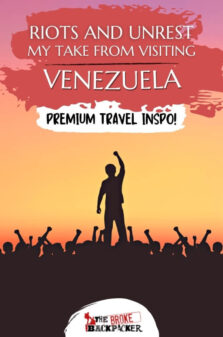Civil unrest prowled the street like the fifth horseman of the apocalypse, a burning brand in one hand and a red flag in the other. The blockade glinted in the afternoon sun, black smoke from burning tires spiralling into the sky. My gruff taxi driver turned to me, “we must go around”.
He gunned the ancient car into reverse and we shot away from the scene, anxious to be gone before the police arrived with their gas, batons and rubber bullets. The streets of Merida were alive with activity, an aura of menace hung heavy in the air.
Gangs of students in red shirts marched towards the city centre, spraying walls with graffiti. Police in urban camo stood shoulder to shoulder with the infamous guardia nacional, AKs strapped to their chests. They eyed the protestors suspiciously, ready at any minute to advance upon the hothead who dared aim a firework at their ranks.
My driver swore in Spanish and mounted the curb. An armoured vehicle of some kind, water cannon at the ready, rolled past us, siren blazing, imploring those in front to move or be crushed. We executed a perfect 500 point turn and retreated away from the noise, along side-streets and narrow roads towards the quieter barrios of the city.
He dropped me near a lush green park, the obligatory statue of Simon Bolivar, sword at the ready, in the Center. A pair of gringo backpackers strolled around snapping pictures, snacking on empanadas and gulping plastic cups of steaming black coffee, this was the ‘tourist centre’.
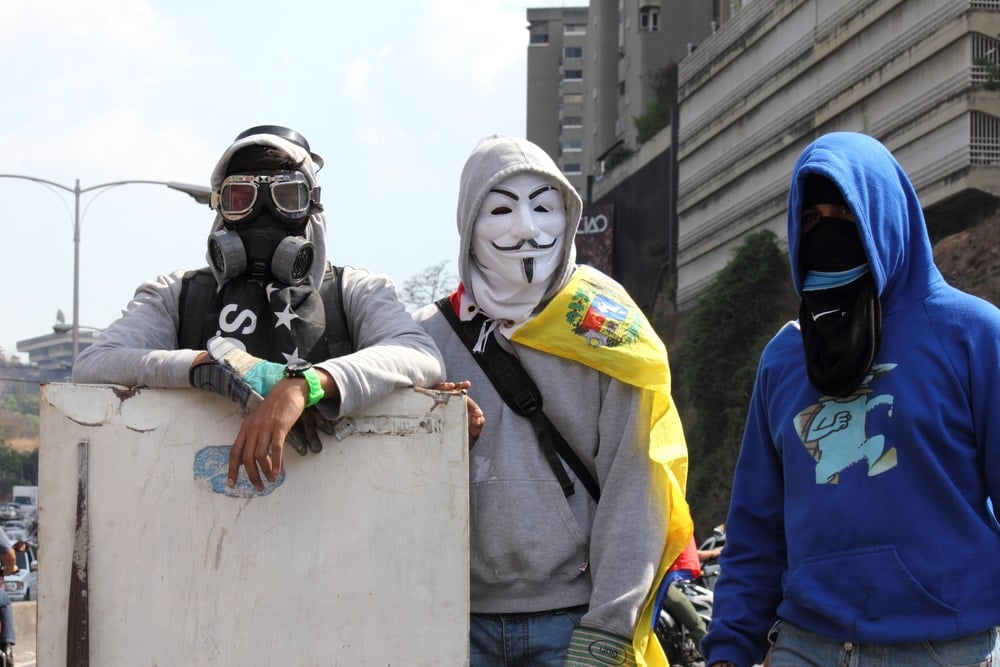
I wandered into a small cafe, it was an oasis of calm. It was not what I had expected, I had been in Merida just four hours and had struggled to cross the city without running into blockades, the students were out in force, the police more so; surely the whole city was swept up in a whirlwind of madness? I could not have been more wrong.
From my seat I watched as young couple flirted, children played and pensioners played chess. There appeared to be little going on in this part of the city. It was a total parallel to the near-revolution I had witnessed a few minutes before. I had little notion of what to expect when I decided to visit Venezuela.
Almost everyone I had spoken to had warned me that the country was on the brink of civil war; a hotbed for crime, food shortages and rampant corruption. For the first time in a while I had been nervous about visiting a new country; travelling to Venezuela had seemed dangerous, mysterious and a little bit mental all at once. The nerves had added to the allure, I simply had to go, I needed to find out what was really going on…
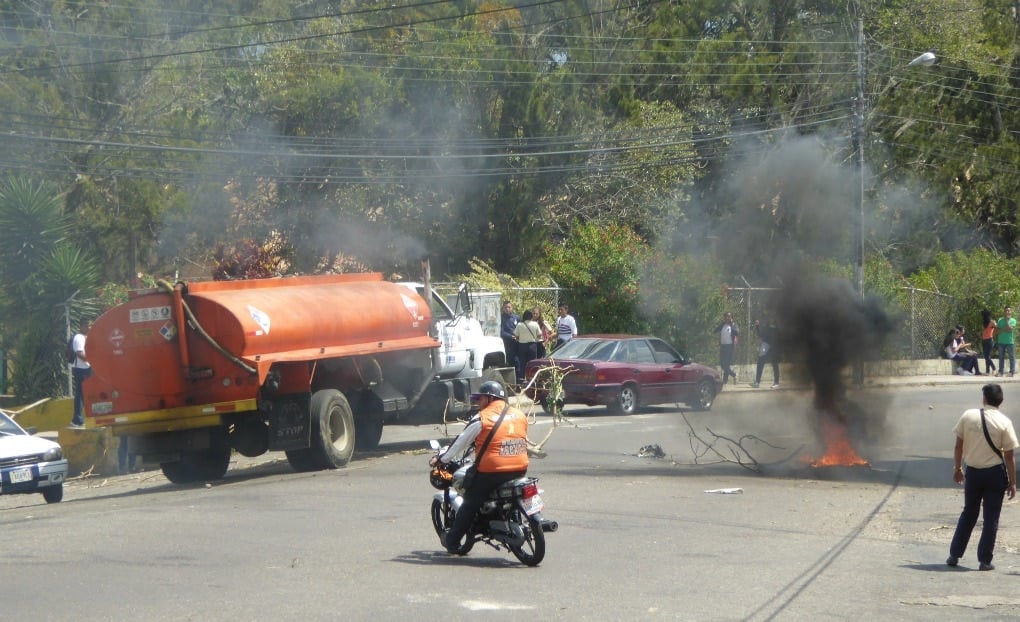
I sipped on a strong black coffee, there was no milk available. Across from me sat a gangly man in a checkered shirt, a pair of spectacles dangling from his nose. Large ears stuck out from under bushy hair, he was reading. I approached him and in my rudimentary Spanish attempted to ask him what was going on. He answered in English, a promising start…
Roberto was preparing to leave the country and keen to share his insights, confessions perhaps, on why he could no longer stay in his homeland.
I asked him about the riots, why only a few Venezuelans seemed to be getting involved.
“The riots just make things worse, they shut down the roads and slow everything down. Whenever a protest starts to gain momentum, the police do not hesitate; they crush it, this is why many Venezuelans now choose to stay out of the way”
Things had not always been this way, once Roberto too had taken to the streets, he had thrown rocks at the police, dragged fallen comrades away from hails of bullets, he had been a front-line man, or so he told me.
“We have no weapons, we cannot beat the police, whenever we make progress; they send in the Guardia Nacional, they are very bad, very corrupt”
Roberto had no choice he said, he simply must leave. Ten years ago, his father, a university professor, earned around $2000 a month. Today, due to the rampant inflation which has only gotten worse due to the insane black market rates, he earns just $60 a month for the same job, barely enough to get by.
“The government is a street gang, they rob, they take what is not theirs, there is nothing we can do”
According to Roberto, the government had stolen huge tracts of land and companies as well as numerous properties to distribute amongst it’s cronies. He told me of a friend who had been forced to leave his profitable farm by masked gunmen in the middle of the night.
A week later; an army officer moved in, he had the deed to the land, or so he said. Roberto’s friend had never returned to his home. The government’s unfair meddling and opaque corruption was destroying local businesses and devaluing the bolivar even further.
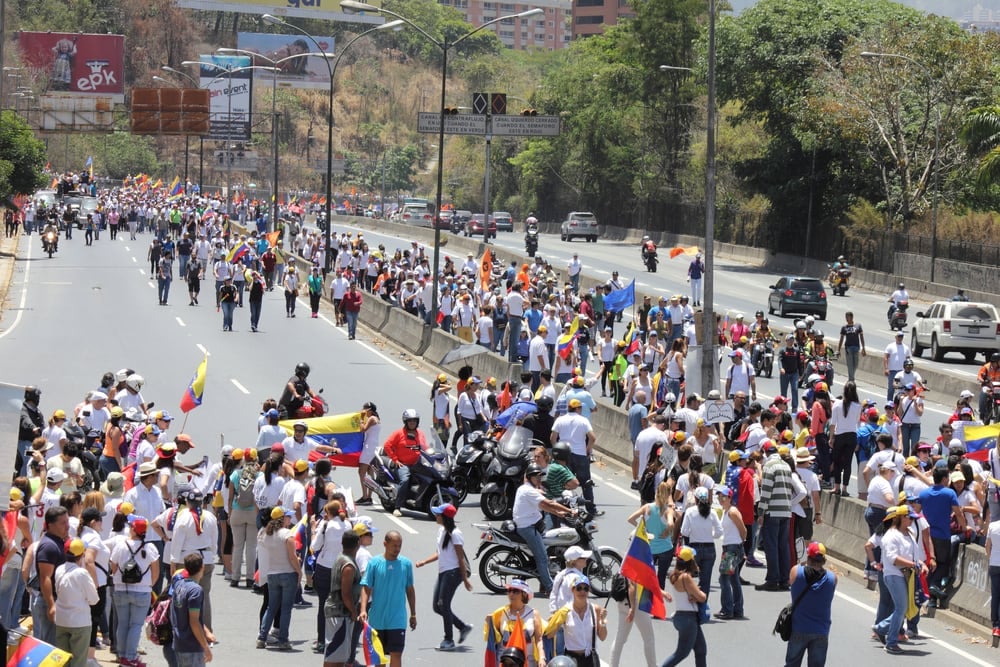
He raised his voice, gesticulating wildly, a far-cry from his previously calm demeanour. People began to stare, unable to understand what he was saying, for we were conversing mostly in English but picking up on the passion, and hostility, in his voice. We left the cafe to talk in private.
“Why didn’t the German people get rid of the Nazis” Roberto asked pointedly, jabbing his finger towards my chest, a clever answer to a foolish question. “Without weapons, without pressure from other governments, we cannot win, we can only suffer”.
Roberto was sick of suffering, he was leaving – off to Cuba and then, perhaps, onwards to America. Right now, basic food-stuffs were scarce, people queued for hours to buy powdered milk, bread and toilet paper, Roberto was tired of queuing, he dreamed of a fully stocked fridge, a brimming medicine cabinet.
“We’re importing everything and it’s still not enough”
Venezuela should be one of the richest countries in the world, the country has the largest oil reserves in the world and a full tank of gasoline (around 60 litres) costs just 2 bolivars, a little less than one cent. Bottled water on the other hand costs over one hundred times more.
Roberto told me that Venezuela was now importing gasoline from Brazil, a travesty for a country where oil bubbles freely from the ground. He had to go, he had a plane to catch that very day, away from Merida and onwards to Caracas and then, Cuba.
I thanked him for his time and asked him one more question, “What does the future hold for Venezuela?’
He looked me in the eye, it was hard to say how much of what he had told me had been completely accurate but he looked serious.
“Bloodshed, lots of bloodshed”
With plummeting oil prices, rising inflation, increasing shortages and the clamouring voices of a million unheard souls, it was hard to disagree with him.
I shook his hand and he left. One more emigrant, part of a mass exodus, leaving the shores of a once beloved homeland, perhaps never to return.
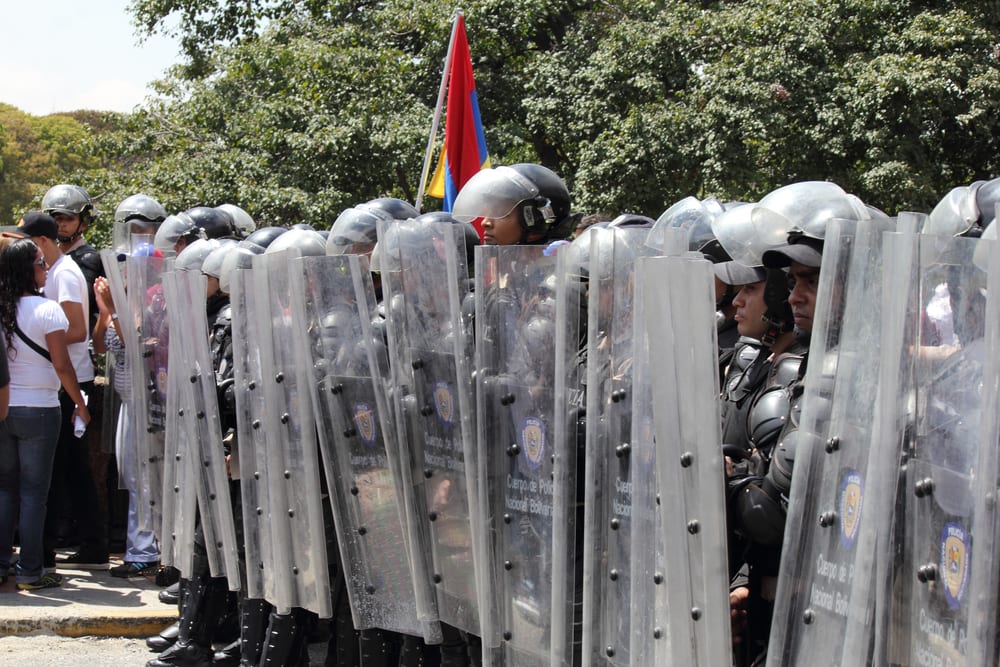
Please note: Roberto’s name has been changed. I do not claim to be an expert on Venezuelan politics, all I can report upon are the feelings of those I have met on my travels in this truly stunning, somewhat tragic, country. There are two sides to every story, something I am more than aware of however the increased devaluation of the bolivar, rampant corruption scandals and history of police brutality seem to suggest that a change of government is necessary and, perhaps, imminent. With luck, Roberto can return to a calmer, more peaceful, Venezuela sooner than he anticipates.

And for transparency’s sake, please know that some of the links in our content are affiliate links. That means that if you book your accommodation, buy your gear, or sort your insurance through our link, we earn a small commission (at no extra cost to you). That said, we only link to the gear we trust and never recommend services we don’t believe are up to scratch. Again, thank you!


